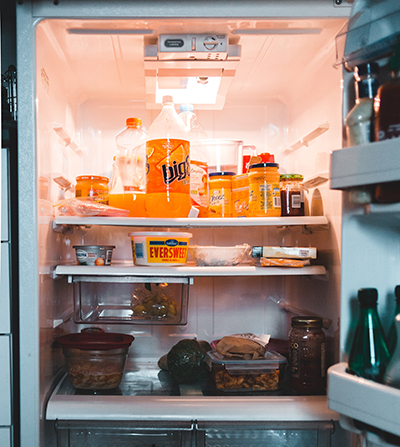#MoveTheDate
If households opted for high-efficiency appliances, without using them more, we would move Earth Overshoot Day by 6 days.
What is the solution?
Replace home appliances with energy efficient models when they reach the end of their useful lives.
This solution improves our resource security in the energy category.
How does it #MoveTheDate?
Energy efficient home appliances can reduce home energy use by 30%.
How is it scalable?
Expanding the market share of efficient appliances can be achieved through technological improvements and government incentives. Governments can use many instruments including subsidies, rebates, energy taxes, and regulations like efficiency standards.
What is the solution?
Replace home appliances with energy efficient models when they reach the end of their useful lives.
This solution improves our resource security in the energy category.
How does it #MoveTheDate?
Energy efficient home appliances can reduce home energy use by 30%.
How is it scalable?
Expanding the market share of efficient appliances can be achieved through technological improvements and government incentives. Governments can use many instruments including subsidies, rebates, energy taxes, and regulations like efficiency standards.
Appliances that run constantly, like refrigerators and freezers, are some of the largest energy consumers in the home. A single refrigerator can use up to 14% of a home’s energy. With new efficient refrigerators consuming less than one third of the energy of older models, and similar gains for other categories of appliances, a variety of standards have been established around the world to help consumers understand these differences. The Energy Star star is perhaps the most common labeling standard around the world, in place in the US, Japan, Taiwan, and parts of Europe.
Energy standards need to be updated regularly as technological improvements are made; these improvements gradually cause all new appliances to qualify for the top “most efficient” category. Many countries already have minimum standards for appliances, although these are set conservatively with the goal of avoiding additional costs to the consumer. However, the additional cost of energy efficient appliances is generally offset within 5-7 years thanks to lower electricity bills, and achieves a net benefit over the life cycle of the appliance. As a result, several countries have been experimenting with proposals for stronger efficiency mandates. Singapore is one of those countries, increasing its Minimum Energy Performance Standards by 2022, and Canada has proposed mandating Energy Star certification by 2022.
There’s no benefit in waiting!
Acting now puts you at a strategic advantage in a world increasingly defined by ecological overshoot. Countless solutions exist that #MoveTheDate. They’re creative, economically viable, and ready to deploy at scale. With them, we can make ourselves more resilient and #MoveTheDate of Earth Overshoot Day. If we move the date 6 days each year, humanity can be out of overshoot before 2050.

